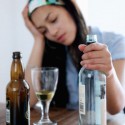Reducing blood alcohol limit to 0.02 won’t stop car crashes, say experts
THE Queensland Government’s proposal to see the alcohol limit cut to 0.02 across Australia has been labelled as “nonsense” by alcohol and accident experts.
Motoring groups, police, accident research centres and hotelliers all rejected moves to slash the drink-driving limit outlined in a Queensland Government discussion paper released yesterday, arguing it would make little difference in reducing the number of accidents.
Transport Minister Rachel Nolan acknowledged not all ideas in the paper were feasible, and a 0.02 limit would have to be part of a national push.
“In the last week we have announced alcohol interlocks . . . the next step is the question of what should the blood alcohol limit be, which is a matter for broad community discussion,” she said.
Prime Minister Kevin Rudd says the proposal should be discussed by ministers across the country in a systematic manner.
“This is best deliberated on between the transport ministers of Australia – state and federal – together with the health ministers,” he said.
But experts rejected any move to reduce the limit saying the proposal was “draconian” and wasn’t backed by any evidence that accidents would be reduced.
Monash University’s Professor Max Cameron said a drop to 0.02 was “nonsense” when the major problem was drivers above 0.15.
“It’s absolutely watertight that there is no (accident) increase(s) in levels below .05,” Mr Cameron said.
The alcohol-crash expert said Queensland mirrored Victoria, where two-thirds of booze-related crashes involved drivers with blood alcohol readings of 0.15 or above, many of whom were repeat offenders.
Mr Cameron said impounding the cars of repeat drink-drivers was more effective than licence suspensions, which tempted offenders to hop back in their cars.
Motor Accident Commission spokesman Ben Tuffnell said if the Government decided to introduce the proposals, they might as well cut the legal limit to zero.
“One drink for one person may put them over the limit while another person will be fine,” Mr Tuffnell said.
He said 35 per cent of people who died in motor accidents last year had a blood alcohol concentration of 0.05 per cent or higher.
RACQ spokesman Gary Fites said said lowering the alcohol limit would punish those who drank responsibly. A blood alcohol reading of 0.02 was “almost equivalent to zero”, he said.
“The risk of crash between 0.02 and 0.05 is absolutely minute compared with the exponential increase in risk when you get to 0.08 and above,” Mr Fites said.
Mr Fites said the RACQ supported examining other proposals in the discussion paper, such as impounding vehicles and abolishing work licences for serious offenders.
Queensland Opposition transport spokeswoman Fiona Simpson said more effort should be invested in penalising law breakers.
“My concern is you may have a lot of mums and dads who may have a beer or a glass of wine who may be criminalised if we move the limit down to 0.02,” she said.
Hotel owners said the proposed restriction was “draconian” and would have a considerable effect on the hospitality industry’s bottom line.
“Certainly this is going to have a significant impact on the business of pubs, hotels and restaurants,” Australian Hoteliers Association SA general manager Ian Horne said. “Not being able to have a single beer or a glass of wine over dinner without knowing if you’re over.”
Queensland Police Union president Ian Leavers yesterday said more police officers on the street was the answer.
source: http://www.news.com.au

